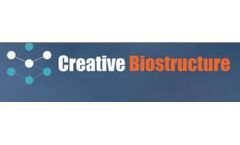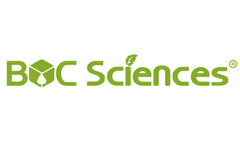Immune Suppressing Articles & Analysis
13 articles found
Mouse models play a pivotal role in this field, as their immune system shares many similarities with that of humans. A key aspect of studying the immune system involves analyzing cytokines, chemokines, and growth factors—molecules that regulate immune responses and influence disease progression. ...
For instance, sphingolipids in exosomes are implicated in cancer progression by promoting exosome-mediated signaling that enhances tumor cell proliferation and immune evasion. Researchers have found that alterations in exosomal lipid profiles can be a hallmark of disease. ...
Immune receptors, which are protein molecules expressed on the membrane of immune cells, play a key role in regulating immune responses. These receptors can interact with specific ligands to trigger a cascade of events that lead to the activation or suppression of immune responses. Immune ...
Ly6c+ cells serve as targets for treating IBD, and the immune-suppressive cytokine IL-10 has been reported to inhibit IBD. To induce long-term IL-10 production, IL-10 mRNA-loaded LNP was first prepared, followed by incubation with anchored secondary scFv enabling targeting (ASSET) micelles at 4°C for 48 hours and subsequent incubation with anti-Ly6c ...
This orchestrated strategy affects various dimensions of the immune response. Given its multifaceted contribution to tumor advancement as an emerging immune checkpoint, CD73 stands out as a promising target for cancer treatment. ...
Pairing high parameter flow cytometry with Ozette’s next generation analysis helped decipher the complex immune landscape of tumors and revealed tumor-specific cell populations that modulate immune responses. ...
In contrast, γδ T cells, expressing γδ TCR, are effector cells in the innate immune system, which function in an MHC-unrestricted manner, making them ideal mediators for cancer immunotherapy. ...
In the Dairy Industry, we deal with high-risk groups every day–cows that have just calved and newborn calves less than 75 days of age. Herd immunity threshold (percent of animals that are immune) varies by the disease, but it usually means that 80 to 95 percent of the herd has antibody immunity to the virus or bacteria. ...
As Th1, Th2, and Th17 responses are involved in the pathogenesis of AD,8,10,14 oral administration of KBL382 modulated the adaptive immune response, leading to suppression of Th1 (IL-2 and IFN-γ), Th2 (IL-4, IL-5, IL-13, and IL-31), and Th17 (IL-17A) cytokines (Figure 5A-E, G-H, and S2C-E). ...
What is autoimmune disease? Autoimmune disease a condition in which the body’s immune system mistakenly attacks the body itself. Thus far, more than 80 different autoimmune diseases have been identified, with some of the most prevalent including rheumatoid arthritis, Crohn’s disease, type 1 diabetes, and multiple sclerosis [1]. Autoimmune disease is one of the top ten causes of ...
The corticosteroids can cause rapid heartbeat, weight gain, skin problems and neurological issues, while biologics suppress the immune system, making you more vulnerable to other illnesses and infections. ...
Normally, Cryptococcus molds are capable of causing severe infections only in humans with compromised immune systems, such as AIDS and cancer patients or those undergoing immune system suppression for organ transplantation. Unlike other forms of Cryptococcus, C. gattii can affect persons with normal immune systems, resulting in ...
To address if the modulation of immunity balance by low dose radiation is involved in the enhancement of the anti-tumour function, we examined the effect of 0.5 Gy γ-irradiation on the Th1/Th2 immunity balance in Ehrlich Solid Tumour (EST)-bearing mice. Repeated 0.5 Gy γ-irradiation significantly delayed the growth of tumours. The cytotoxic activities of Natural Killer (NK) cells and Cytotoxic T ...













